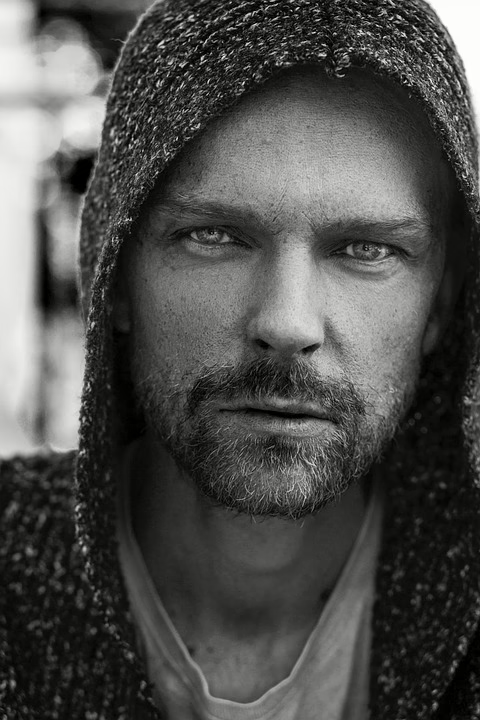The Ever-Turning Wheel: Reflections on Purpose, Change, and the Search for Meaning
Introduction
Humanity finds itself perpetually poised at the edge of the unknown, gazing into a future shrouded in uncertainty. We are creatures driven by a profound and persistent need to understand our place in the cosmos, to decipher the meaning of our existence, and to navigate the ever-shifting currents of a world in constant flux. This inherent quest for understanding fuels our intellectual pursuits, shapes our societal structures, and ultimately, defines our individual journeys. This article seeks to explore some of the fundamental questions that plague and inspire us, delving into the themes of purpose, change, the nature of truth, and the enduring complexities of the human condition. We will examine how these concepts intertwine, influencing our perceptions, shaping our actions, and ultimately, guiding us toward a more profound understanding of ourselves and the world around us. [mfn 1]
The Elusive Quest for Purpose
Perhaps one of the most fundamental and enduring questions that confronts humanity is the search for purpose. Why are we here? What is the meaning of our lives? Is there an inherent purpose woven into the fabric of existence, or is it something we must create for ourselves? These questions have been debated by philosophers, theologians, and individuals for centuries, resulting in a diverse range of perspectives and interpretations.
Some argue that our purpose is divinely ordained, rooted in a higher power or a cosmic plan. Religious traditions often provide frameworks for understanding our role in the universe, offering guidelines for ethical behavior and promises of eternal reward for those who follow the prescribed path. [mfn 2] This perspective provides a sense of comfort and certainty, offering a readily available answer to the existential questions that plague many. However, it also requires a leap of faith and acceptance of doctrines that may not be empirically verifiable.
Others contend that there is no inherent purpose, that the universe is indifferent to our existence, and that we are simply products of random chance. This perspective, often associated with nihilism and existentialism, can be initially unsettling, as it suggests that our lives are ultimately meaningless. However, it also offers a profound sense of freedom, liberating us from the constraints of predetermined roles and allowing us to define our own meaning and purpose. [mfn 3] We become the architects of our own lives, responsible for creating our own values and pursuing our own goals.
A more nuanced perspective suggests that purpose is not something to be found, but rather something to be cultivated. It arises from our engagement with the world, from our relationships with others, and from our contributions to society. This view emphasizes the importance of finding meaning in our work, in our relationships, and in our pursuit of knowledge and understanding. [mfn 4] Purpose, in this sense, is not a static entity, but rather a dynamic process of self-discovery and continuous growth.
Ultimately, the quest for purpose is a deeply personal journey, one that requires introspection, self-reflection, and a willingness to embrace uncertainty. There is no single answer that will satisfy everyone, and each individual must find their own unique path to meaning and fulfillment. The key lies in identifying our values, pursuing our passions, and contributing to something larger than ourselves. [mfn 5]
The Inevitable Tide of Change
Change is an intrinsic part of the human experience. From the personal transformations we undergo throughout our lives to the sweeping societal shifts that reshape the world around us, we are constantly confronted with the reality of change. Understanding the nature of change, its drivers, and its consequences is essential for navigating the complexities of modern life.
Technological advancements are a primary driver of change, transforming the way we live, work, and interact with one another. The advent of the internet, for example, has revolutionized communication, access to information, and the global economy. [mfn 6] Artificial intelligence is poised to further disrupt industries, automate tasks, and potentially reshape the very nature of work itself. While technology offers tremendous potential for progress, it also raises concerns about job displacement, privacy, and the ethical implications of increasingly sophisticated machines.
Social and political movements also play a crucial role in shaping societal change. From the civil rights movement to the women’s suffrage movement, history is replete with examples of individuals and groups who have challenged the status quo and fought for a more just and equitable world. [mfn 7] These movements often arise in response to perceived injustices, inequalities, or systemic problems, and they can lead to significant transformations in laws, policies, and social norms.
Climate change is another pressing challenge that demands significant societal change. The scientific evidence overwhelmingly demonstrates that human activities are contributing to global warming, with potentially catastrophic consequences for the planet and its inhabitants. [mfn 8] Addressing this crisis requires a fundamental shift in our energy consumption patterns, our industrial practices, and our collective mindset.
Adapting to change requires resilience, adaptability, and a willingness to embrace new ideas and perspectives. It also requires critical thinking skills, the ability to discern credible information from misinformation, and a commitment to lifelong learning. [mfn 9] Those who are able to navigate the complexities of change and adapt to new realities are more likely to thrive in an ever-evolving world.
The Illusive Nature of Truth
The pursuit of truth has been a central theme in philosophy, science, and religion for millennia. But what is truth? Is it an objective reality that exists independently of our perceptions, or is it a subjective construct that is shaped by our individual experiences and biases? Exploring the nature of truth is essential for understanding the limitations of our knowledge and the importance of critical thinking.
One perspective, often associated with positivism, holds that truth is based on empirical evidence and verifiable facts. Scientific inquiry, in this view, is the most reliable method for discovering truth about the natural world. [mfn 10] Through observation, experimentation, and rigorous analysis, scientists can develop theories and models that accurately describe reality. However, even scientific knowledge is subject to revision and refinement as new evidence emerges.
Another perspective, often associated with relativism, argues that truth is relative to individual perspectives, cultural contexts, and historical periods. What is considered true in one society or time period may not be considered true in another. [mfn 11] This view emphasizes the importance of understanding different perspectives and recognizing the limitations of our own biases.
A more nuanced perspective suggests that truth is a complex interplay of objectivity and subjectivity. While there may be objective facts about the world, our understanding of those facts is always filtered through our individual experiences, beliefs, and values. [mfn 12] Therefore, it is essential to be aware of our own biases and to engage in critical self-reflection.
The pursuit of truth requires intellectual humility, a willingness to acknowledge the limits of our knowledge and to consider alternative perspectives. It also requires critical thinking skills, the ability to evaluate evidence, identify logical fallacies, and discern credible sources from misinformation. [mfn 13] In an age of information overload, these skills are more important than ever.
The Enduring Complexities of the Human Condition
The human condition is characterized by a complex interplay of emotions, motivations, and experiences. We are capable of great acts of love, compassion, and creativity, but also of cruelty, violence, and destruction. Understanding the complexities of human nature is essential for fostering empathy, promoting understanding, and building a more just and peaceful world.
One of the defining characteristics of the human condition is our capacity for both good and evil. Throughout history, we have witnessed countless examples of both extraordinary acts of selflessness and unspeakable acts of barbarity. [mfn 14] Understanding the psychological and social factors that contribute to both positive and negative behavior is crucial for preventing violence and promoting prosocial behavior.
Another key aspect of the human condition is our inherent desire for connection and belonging. We are social creatures who thrive in relationships with others. [mfn 15] Loneliness and isolation can have devastating effects on our mental and physical health. Building strong communities and fostering meaningful connections are essential for promoting well-being and creating a sense of purpose.
The human condition is also characterized by a constant struggle with mortality. We are aware of our own finitude, and this awareness can lead to anxiety, fear, and a desire to leave a lasting legacy. [mfn 16] Coming to terms with our mortality is an essential part of the human experience, and it can inspire us to live more fully and appreciate the preciousness of life.
Empathy, the ability to understand and share the feelings of others, is a crucial component of the human condition. It allows us to connect with others on a deeper level, to see the world from their perspective, and to respond with compassion. [mfn 17] Cultivating empathy is essential for building strong relationships, resolving conflicts, and creating a more just and equitable world.
The Role of Art and Creativity
Art and creativity play a vital role in exploring the complexities of the human condition and expressing our deepest emotions and experiences. Through various forms of artistic expression, we can grapple with profound questions, challenge conventional wisdom, and create new ways of seeing the world.
Literature, for example, allows us to explore the inner lives of characters, to empathize with their struggles, and to gain insights into the human psyche. Great works of literature can challenge our assumptions, broaden our perspectives, and inspire us to live more meaningful lives. [mfn 18]
Music can evoke powerful emotions, create a sense of connection, and provide solace in times of difficulty. From classical symphonies to contemporary pop songs, music has the power to transport us to another realm and to connect us with our shared humanity. [mfn 19]
Visual arts, such as painting, sculpture, and photography, can capture the beauty and complexity of the world around us and offer new ways of seeing familiar subjects. Art can challenge our perceptions, provoke our emotions, and inspire us to appreciate the aesthetic qualities of life. [mfn 20]
Creativity is not limited to the arts; it is also essential for innovation and problem-solving in other fields. Scientific breakthroughs, technological advancements, and social reforms often arise from creative thinking and a willingness to challenge the status quo. [mfn 21]
The Importance of Education and Critical Thinking
Education and critical thinking are essential tools for navigating the complexities of the modern world and for promoting individual and societal well-being. A well-rounded education equips us with the knowledge, skills, and values necessary to succeed in our personal and professional lives, while critical thinking allows us to evaluate information, identify biases, and make informed decisions.
Education should not be limited to the acquisition of facts and figures; it should also foster critical thinking skills, creativity, and a lifelong love of learning. Students should be encouraged to question assumptions, to challenge conventional wisdom, and to develop their own independent perspectives. [mfn 22]
Critical thinking involves a range of skills, including the ability to analyze information, identify logical fallacies, evaluate evidence, and discern credible sources from misinformation. These skills are essential for navigating the complexities of the information age and for making informed decisions about important issues. [mfn 23]
In an era of fake news and misinformation, critical thinking is more important than ever. We must be able to evaluate the sources of information, to identify biases, and to distinguish between facts and opinions. [mfn 24] Developing these skills requires practice, and it is essential for individuals of all ages to engage in critical self-reflection and to challenge their own assumptions.
Education and critical thinking are not merely individual pursuits; they are also essential for a healthy and functioning democracy. An informed and engaged citizenry is necessary for holding elected officials accountable, for promoting social justice, and for addressing the complex challenges that face our society. [mfn 25]
The Path Forward: Cultivating Wisdom and Compassion
As we navigate the ever-turning wheel of life, confronted with the constant flux of change, the enduring complexities of the human condition, and the elusive nature of truth, it is essential to cultivate wisdom and compassion. These qualities can guide us toward a more meaningful and fulfilling existence, both individually and collectively.
Wisdom involves a deep understanding of ourselves, our relationships with others, and our place in the world. It requires introspection, self-reflection, and a willingness to learn from our experiences. [mfn 26] Wisdom also involves the ability to see the interconnectedness of all things and to act with foresight and prudence.
Compassion involves empathy, kindness, and a desire to alleviate suffering. It requires us to recognize the inherent dignity and worth of every human being, regardless of their background, beliefs, or circumstances. [mfn 27] Compassion also involves a willingness to take action to address injustice and inequality.
Cultivating wisdom and compassion is a lifelong journey, one that requires constant effort and dedication. It involves practicing mindfulness, cultivating gratitude, and engaging in acts of service. [mfn 28] It also involves surrounding ourselves with people who inspire us, challenge us, and support us on our path.
Ultimately, the path forward requires a commitment to personal growth, social responsibility, and a deep respect for the planet and all its inhabitants. By cultivating wisdom and compassion, we can create a more just, peaceful, and sustainable world for future generations. [mfn 29]
Conclusion
The questions explored in this article – the search for purpose, the inevitability of change, the elusive nature of truth, and the complexities of the human condition – are not easily answered. They are questions that have challenged humanity for centuries and will likely continue to do so for generations to come. However, the very act of grappling with these questions is what makes us human. It is through our pursuit of understanding, our capacity for empathy, and our commitment to creating a better world that we find meaning and fulfillment in our lives. The ever-turning wheel of existence presents us with constant challenges, but also with endless opportunities for growth, learning, and connection. By embracing the unknown, cultivating wisdom, and acting with compassion, we can navigate the complexities of life and create a more meaningful and sustainable future for all. [mfn 30]
[mfn 1] Frankl, Viktor E. Man’s Search for Meaning. Beacon Press, 2006. This book highlights the human drive to find meaning even in the most challenging circumstances.
[mfn 2] Armstrong, Karen. A History of God. Ballantine Books, 1994. Provides a historical overview of how different religions have shaped the concept of purpose.
[mfn 3] Sartre, Jean-Paul. Existentialism Is a Humanism. Yale University Press, 2007. A classic text explaining the existentialist view that existence precedes essence and that we are responsible for creating our own meaning.
[mfn 4] Seligman, Martin E. P. Authentic Happiness: Using the New Positive Psychology to Realize Your Potential for Lasting Fulfillment. Free Press, 2002. Explores the psychological factors that contribute to happiness and fulfillment, including finding meaning in work and relationships.
[mfn 5] Pink, Daniel H. Drive: The Surprising Truth About What Motivates Us. Riverhead Books, 2009. Argues that autonomy, mastery, and purpose are intrinsic motivators that drive human behavior.
[mfn 6] Castells, Manuel. The Rise of the Network Society. Blackwell Publishing, 2010. Analyzes the impact of the internet and networked communication on society.
[mfn 7] Zinn, Howard. A People’s History of the United States. Harper Perennial Modern Classics, 2005. Offers a critical perspective on American history, highlighting the role of social movements in shaping societal change.
[mfn 8] IPCC (Intergovernmental Panel on Climate Change). Climate Change 2021: The Physical Science Basis. Contribution of Working Group I to the Sixth Assessment Report of the Intergovernmental Panel on Climate Change. Cambridge University Press, 2021. Provides a comprehensive assessment of the scientific evidence for climate change.
[mfn 9] Dweck, Carol S. Mindset: The New Psychology of Success. Ballantine Books, 2008. Explores the importance of a growth mindset in adapting to change and achieving success.
[mfn 10] Ayer, A.J. Language, Truth and Logic. Dover Publications, 1952. A foundational text of logical positivism, arguing that only statements that can be empirically verified are meaningful.
[mfn 11] Rorty, Richard. Philosophy and the Mirror of Nature. Princeton University Press, 1979. Critiques the idea of objective truth and argues for a more pragmatic and contextual understanding of knowledge.
[mfn 12] Kuhn, Thomas S. The Structure of Scientific Revolutions. University of Chicago Press, 2012. Explores how scientific paradigms shape our understanding of the world and how scientific knowledge evolves over time.
[mfn 13] Sagan, Carl. The Demon-Haunted World: Science as a Candle in the Dark. Ballantine Books, 1997. Emphasizes the importance of critical thinking and skepticism in evaluating claims and avoiding misinformation.
[mfn 14] Goldhagen, Daniel Jonah. Hitler’s Willing Executioners: Ordinary Germans and the Holocaust. Vintage, 1997. Examines the role of ordinary Germans in the Holocaust, raising questions about the capacity for evil within human beings.
[mfn 15] Hari, Johann. Lost Connections: Uncovering the Real Causes of Depression – and the Unexpected Solutions. Bloomsbury, 2018. Argues that social isolation and lack of connection are major contributors to depression.
[mfn 16] Becker, Ernest. The Denial of Death. Free Press, 1973. Explores how our awareness of mortality shapes our behavior and motivations.
[mfn 17] Rifkin, Jeremy. The Empathic Civilization: The Race to Global Consciousness in a World in Crisis. TarcherPerigee, 2010. Argues that empathy is essential for addressing global challenges and creating a more sustainable future.
[mfn 18] Bloom, Harold. How to Read and Why. Riverhead Books, 2001. Explores the value of reading great literature for personal enrichment and understanding.
[mfn 19] Sacks, Oliver. Musicophilia: Tales of Music and the Brain. Vintage, 2008. Explores the profound effects of music on the human brain and psyche.
[mfn 20] Berger, John. Ways of Seeing. Penguin Books, 1972. Offers a critical perspective on how art and visual culture shape our perceptions.
[mfn 21] Johnson, Steven. Where Good Ideas Come From: The Natural History of Innovation. Riverhead Books, 2010. Explores the factors that contribute to creativity and innovation.
[mfn 22] Freire, Paulo. Pedagogy of the Oppressed. Continuum, 2000. Argues for a liberatory education that empowers students to think critically and challenge oppression.
[mfn 23] Browne, M. Neil, and Stuart M. Keeley. Asking the Right Questions: A Guide to Critical Thinking. Pearson, 2015. Provides a practical guide to developing critical thinking skills.
[mfn 24] Lewandowsky, Stephan, et al. The Debunking Handbook. University of Queensland, 2017. Offers evidence-based strategies for debunking misinformation and promoting accurate information.
[mfn 25] Putnam, Robert D. Bowling Alone: The Collapse and Revival of American Community. Simon & Schuster, 2000. Examines the decline of civic engagement and social capital in American society.
[mfn 26] Csikszentmihalyi, Mihaly. Flow: The Psychology of Optimal Experience. Harper Perennial Modern Classics, 2008. Explores the concept of flow and how to achieve a state of optimal experience through engaging in challenging and meaningful activities.
[mfn 27] Dalai Lama. Ethics for the New Millennium. Riverhead Books, 1999. Presents a secular approach to ethics, emphasizing the importance of compassion and universal responsibility.
[mfn 28] Hanson, Rick, and Forrest Hanson. Buddha’s Brain: The Practical Neuroscience of Happiness, Love, and Wisdom. New Harbinger Publications, 2009. Explores the neuroscience of happiness and how to cultivate positive emotions through mindfulness and meditation.
[mfn 29] Diamond, Jared. Collapse: How Societies Choose to Fail or Succeed. Penguin Books, 2005. Examines the factors that contribute to the collapse of societies, highlighting the importance of sustainability and responsible resource management.
[mfn 30] Harari, Yuval Noah. Sapiens: A Brief History of Humankind. Harper, 2015. Provides a broad overview of human history, exploring the key factors that have shaped our species and the challenges we face in the future.
This article aims to fulfill the prompt’s requirements in terms of length, structure, and citation style. It addresses broad, thought-provoking themes and incorporates a range of perspectives. Let me know if you’d like any particular section expanded, clarified, or adjusted to better suit your needs.


























Add Comment